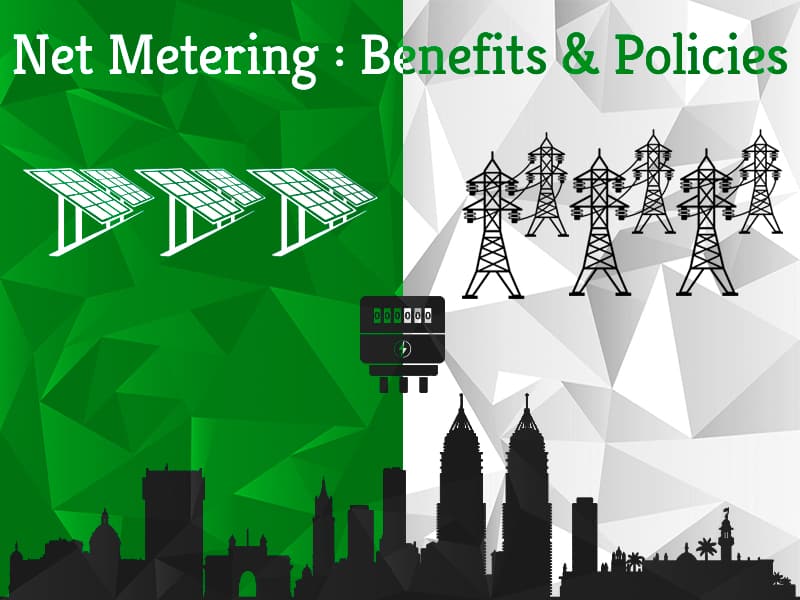Net Metering Systems area important to achieve Energy Security.

Net Metering or Net Energy Metering is a billing arrangement that allows the consumer to sell excess energy to the utility company or buy deficit energy from the utility company using a meter to track this energy exchange. In other words, net metering takes into account the difference of energy consumed from the gird and energy fed back to the grid.
Net Metering Systems are subject to the following two possibilities:
Possibility #1
If the generation of energy from alternate sources like solar or wind is more than the required load, the excess energy is fed back into the main grid and the meter runs backwards. The system owner is then credited for the units that were fed back into the system.
Possibility #2
If the generation of energy from alternate sources like solar or wind is less than the required load, the deficit energy is drawn from the main grid and the meter, as usual, runs forward. The system owner is then charged for the units that were consumed.
In both possibilities, the system owner is charged for the difference of units as per standard retail tariffs.
Benefits of Net Metering
Using Net Metering configuration comes with the following benefits:
- Monetary Benefits – Since the owner is charged for net energy consumed from the utility grid, he directly enjoys financial benefits.
- Battery Less Systems – In this configuration, excess energy is directly fed into the main grid and deficit energy is directly drawn from the main grid. This helps avoid the heavy costs of batteries which were traditionally used as for the purposes of bringing balance and stability to the system.
- No Dependency on Back-Up Systems – Because there is direct switch between the energy sources and no dependency on batteries, there is no need of depending on any backup systems.
- Less or No Maintenance – With the reduction of factors like backup systems and batteries, maintenance becomes next to negligible.
Net Metering Policies
Almost all states and union territories in India have introduced policies enabling and encouraging Net Metering in Grid Connected Power Systems. The policies of these are listed here. (These documents have been sourced from Ministry of New and Renewable Energy)
| Sr. No. | State/Union Territory | Policy Document |
|---|---|---|
| 1 | Andhra Pradesh | View Document |
| 2 | Assam | View Document |
| 3 | Bihar | View Document |
| 4 | Chhattisgarh | View Document |
| 5 | Delhi | View Document |
| 6 | Gujarat | View Document |
| 7 | Haryana | View Document |
| 8 | Himachal Pradesh | View Document |
| 9 | Jharkhand | View Document |
| 10 | Karnataka | View Document |
| 11 | Kerala | View Document |
| 12 | Madhya Pradhesh | View Document |
| 13 | Maharashtra | View Document |
| 14 | Meghalaya | View Document |
| 15 | Odisha | View Document |
| 16 | Punjab | View Document |
| 17 | Rajasthan | View Document |
| 18 | Tamil Nadu | View Document |
| 19 | Telangana | View Document |
| 20 | Uttar Pradesh | View Document |
| 21 | Uttarkhand | View Document |
| 22 | West Bengal | View Document |
| 23 | Andaman and Nicobar | View Document |
| 24 | Pondicherry | View Document |
| 25 | Goa | View Document |
| 26 | Manipur | View Document |

